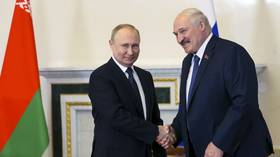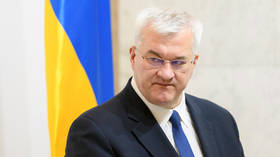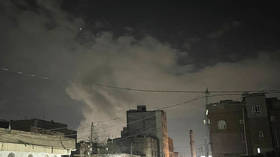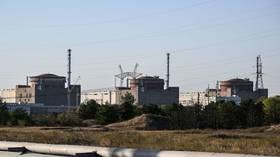Moscow comments on nuclear tech transfer to key ally
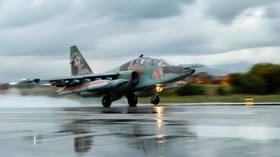
Russia does not intend to give Belarus the technology that would allow it to modify its military jets to carry nuclear weapons, a senior Russian diplomat said on Friday.
Speaking at the UN General Assembly First Committee, which handles arms control and security issues, Konstantin Vorontsov, deputy head of the Russian delegation, voiced concerns about the possibility of NATO moving its nuclear infrastructure closer to the Russian border.
Moscow’s envoy noted that Poland was recently considering full-format involvement in nuclear missions.
“Such activities from Warsaw have been significantly beefed up. This is being taken into consideration by Belarus and Russia,” he said, adding that the allied countermeasures fully comply with the Treaty on the Non-Proliferation of Nuclear Weapons.
The diplomat said these steps include the transfer of Russia’s Iskander-M systems, which are armed with conventional missiles, to Belarus.
Vorontsov said another measure would be to equip some Belarusian SU-25 aircraft with the means to carry nuclear weapons, but that “the transfer of technologies that would allow such weapons to be equipped, is not on the cards.”
He explained that Russia plans neither “to physically equip Belarusian systems with nuclear warheads, nor transfer such warheads to Belarusian territory.” He stressed that Moscow also has no intention of establishing facilities for stockpiling nuclear weapons in Belarus.
The diplomat went on to say that Russia will closely monitor NATO’s policies, particularly after Poland suggested hosting US nuclear weapons on its territory. “This will be a highly destabilizing step, that’s obvious,” Vorontsov warned.
In late August, Belarusian President Alexander Lukashenko said Minsk had finished preparing some of its military aircraft to carry nuclear weapons. He had requested Russia’s help in this regard during a meeting with President Vladimir Putin in late June, when he voiced concerns over Poland’s requests for the US to deploy tactical nuclear weapons on its soil.
